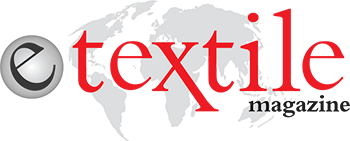The Strategy for Sustainable Export was Discussed at the ‘Social Compliance Audits Summit’
‘Social Compliance Audits Summit’, organized the first time in Turkey, hosted its participants at Istanbul Florya Elite World Business Hotel. In the meeting, which is considered as a road map for every company that exports and is preparing to make export, the formula of Sustainable Exports was discussed in detail.
Ethical audits carried out in order to protect the rights of employees, improve wages and working conditions, not to be exposed to discrimination and forced labor, and to bring occupational health and safety law practices to employees are among the most important issues of the companies in recent years.
With the summit organized by Taksim Consulting Services, the contributions, that provide the companies a sustainable economic order, of the ‘Social Compliance’ systems, which are emerging to be more and more important in the global market, are discussed. At the summit, company representatives and employees operating in various industries had the opportunity to listen to all the requirements that the companies may need regarding ‘Social Compliance and Ethics Audit Programs’ (Brand Audits, BSCI, SEDEX, INDITEX, FAMA, etc.) from the experts.
Dilek Aşan, Founder and General Manager of Taksim Consulting declared the following: ‘‘The summit was held with our valuable speakers, in which the evaluation of the working systems in accordance with the standards established in the context of International Labor Organization laws and evaluating the gains of the companies and employees in the common denominator with the accurate systems. Our Summit will significantly contribute to the business plans that exporting companies will need in their sustainable economic development.’’
No Compliance No Orders
The opening speech of the summit was given by Tarık Bozbey, President of the Department of Africa at Turkish Exporters Assembly. In his speech, Bozbey shared about the effects of corporate social responsibility practices on brand value and explained that the first working arrangement was made in England in 1820 and the working hours were reduced to 12 hours instead of 18 hours. Bozbey continued as follows: ‘‘The first employee rights regulation in the world and the search for trade union rights begin after 1820. ‘Amele Teali Cemiyeti’ established in Turkey in 1924, can be considered as the first movement to administer business life and employee regulations. Respectively; In 1946, the right to form a trade union, the right to organize in 1954 and the strike and lockout law in 1963 were introduced.’’
Tarık Bozbey recalling that in recent years not only the working environment; but also the social environment, comfort, education, development, health, and moral factors also gain importance, indicated that ‘‘Lighting, ventilation comfort, food quality, payment and leave rights in the operating environment are monitored and administered by the inspection report. The world is now very small, everyone knows and follows all the details. People are investigating both the quality of production and the manufacturing environment. They demand the most accurate production methods of goods for children, women, the disabled and in terms of being healthy. Now, even the music played in the facility is the subject of the reviews. Does your company’s production environment harm the environment? Do you respect the rights of your employees? All of these aspects are being checked. Compliance courses, personal trainings, and certificates are provided for the shortcomings. If the company cannot pass these audits, that is, if you do not have social compliance, large companies do not place orders. And they’re right to the end. Because we have one world and we shouldn’t waste it.’’
Industry Representatives Shared Their Social Compliance Experiences
After Bozbey, Ayça Aksoy, Deputy General Manager of Taksim Consulting Services, provided information about the ‘Emergence of the Concept of Social Compliance and Its Sectoral Reflections’.
At the summit the following presentations were performed; ‘At Global Level Social Standards for Work Life’ by Manager of Employment at International Labor Organization (ILO) Office in Turkey, Tuba Burcu Şenel, ‘Social Security, Personal Rights and Working Conditions in Turkey’ by Ethem Yüksel Kahveci, Chairman of the Board of Directors of Istanbul Association of Financial Advisors and Accountants, ‘Social Compliance Audits and Reporting Process’ by Senior Consultant of Social Compliance Audits at Taksim Consulting Services, ‘Benefits of Social Compliance Audits in the Context of Institutionalization’ by ATK Textile Compliance and Sustainability Director, and ‘Effects of Social Compliance Concept on Work-Life’ by Başak Çalıkoğlu, Ford Otosan Human Resources Manager.
Provides professional support to over 4,000 organizations
Founded in 2007, the Taksim Consulting Services provides professional support to more than 4,000 organizations in the area of Corporate Governance Consulting in several provinces of Turkey and conducting studies on the establishment of quality awareness, dissemination of systematic and efficient working environment, delivery and reception of the quality services at the right time. It offers consultancy, auditing, supervision, training, and certification services in the fields of Quality Management Systems, Social Compliance, Personal Data Protection, Occupational Health and Safety for every company in all sectors, which aim to better institutionalization and to raise its brand value.





